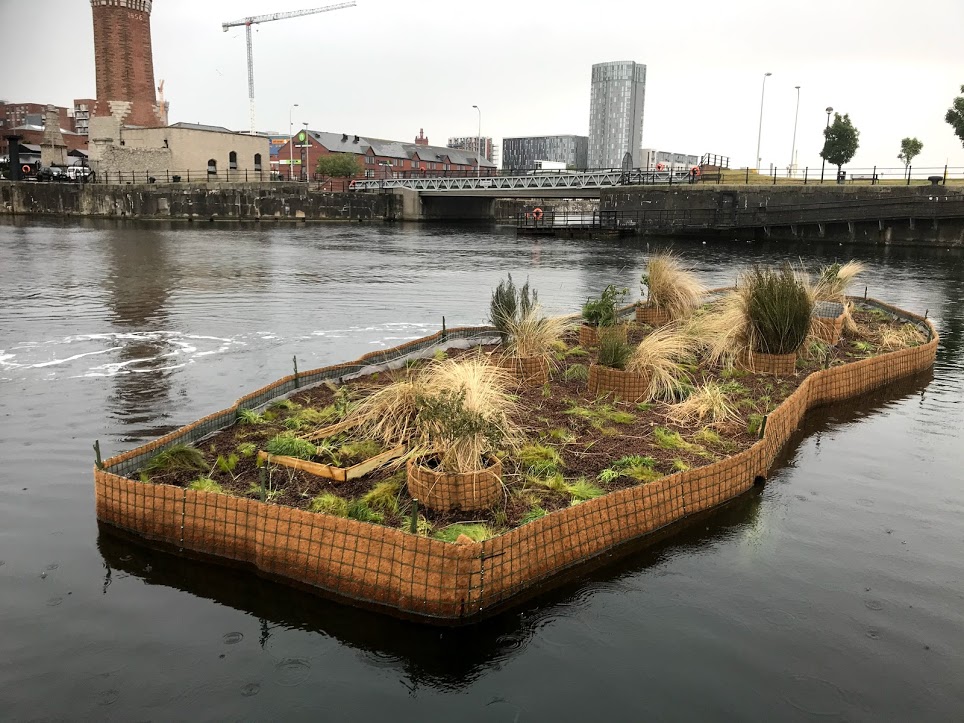Liverpool’s Wapping Dock will continue to benefit from a pioneering floating ecosystem until 2028. The structure was installed on a 63m2 saltwater ecosystem in 2020 and developed by the Canal & River Trust and Liverpool City Council with funds from the EU’s Urban GreenUp programme. The project, which had a variety of plants and a shingle shelf for small fish as well as a submerged reef made of oyster shells, enables marine life and biodiversity to thrive. The project was due to end by summer 2023 with the removal of the ecosystem, but Liverpool BID has sponsored it for another 3-5 years with a £15k funding agreement.
Numerous plant and marine species flourished in just three years, and blue mussels thrived so much that extra buoyancy had to be added to prevent the structure from sinking. The floating ecosystem, described as a prototype for innovative environmental solutions and a model for integrating nature-based developments into city environments, is built to last 15 years, with the Canal & River Trust taking responsibility for maintenance. The project is being considered for the International Ashden Community Adaptation awards and has been entered into the AIPGH World Green City Awards for 2024.
Liverpool BID’s support for the project comes after Liverpool was chosen as one of the five cities supported by the Sustainable Cities Mobility Challenge from a list of 100 to promote cleaner, greener and people-centric transportation projects. Dr Juliet Staples, Liverpool City Council’s Senior Project Manager for URBAN GreenUP, said that green and blue spaces were essential features in cities, making them more pleasant and helping them adapt to climate change impacts. Floating ecosystems are part of a suite of options for cities that want to improve their biodiversity and make their cities more liveable.
Liverpool BID CEO Bill Addy said that it was essential for the city to improve its green infrastructure and that they had laudable high targets to enhance their green credentials and become a city that could thrive in the future. The private sector’s determination to support the process was crucial to ensuring investment that would have a positive impact on future generations. Ecology expert Diane Rollin said that the innovative brackish water ecosystem had supported marine life, including blue mussels and sea squirts that remove toxins from water and improve water quality, both locally and globally
Read the full article on Liverpool Express here: Read More
